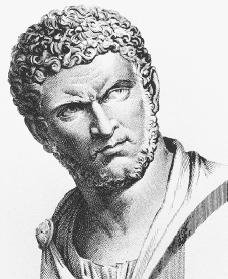
Imagine for yourself a character, a model personality, whose example you determine to follow, in private as well as in public.
This quote has been taken from Epictetus' Enchiridion and to me it represents mentors in our life, whether they be dead, alive or completely made-up.
These mentors should possess behaviours that we wish to foster, and the behaviours they display should benefit ourselves and those around us.
For example, if I wish to be a creative businessman, I may study Steve Jobs' behaviour and tactics as a CEO in order to copy his behaviours and become more effective. The same with Thomas Edison for his work-ethic, Richard Branson for his work-life balance or Jocko Willink for his self-discipline.
It is said that it takes 66 days on average for us to form new habits (based on new scientific research, disproving the claim that it is 21 days) so this is my challenge to you as a reader...
- Choose an area of your life in which you wish to improve.
- Find out who was/is the best in that particular behaviour.
- Observe their habits, from when they were young up until this current moment.
- Do what they did, but better. While staying true to yourself.
- Stick to these habits for 66 days.
- Observe the improvements for yourself.
Doing something like this will allow you to refer back to this mentor in your life whenever you need her/him. And eventually, you will start using their advice in your everyday life whenever you need to call upon them.
You will then have your very own 'Master Mind Group' right there in your head. Like a team of superheroes that make you better and better every single day.
Tell everybody, or keep it to yourself, it doesn't really matter as long as you are self-disciplined enough to execute on developing yourself.
Be Exceptional,

Born into slavery 55AD Epictetus is the famous Stoic of whom is most influenced by God, or the Greek Gods as they were in those times. His slave master was very fond of him and allowed him to study philosophy in his spare time and this is when he was exposed to the ‘Stoa’ teachings by his mentor Musonius Rufus. Epictetus gained freedom from slavery shortly after Emperor Nero’s death and subsequently began teaching philosophy. He taught stoicism for the rest of his life, even when forced to leave Rome as philosophers were banned in Rome, he simply moved to Greece and taught for his remaining days until he died in 135AD. His tao is spread over a few books, each of which is harder reads when compared to Aurelius or Seneca’s writings.